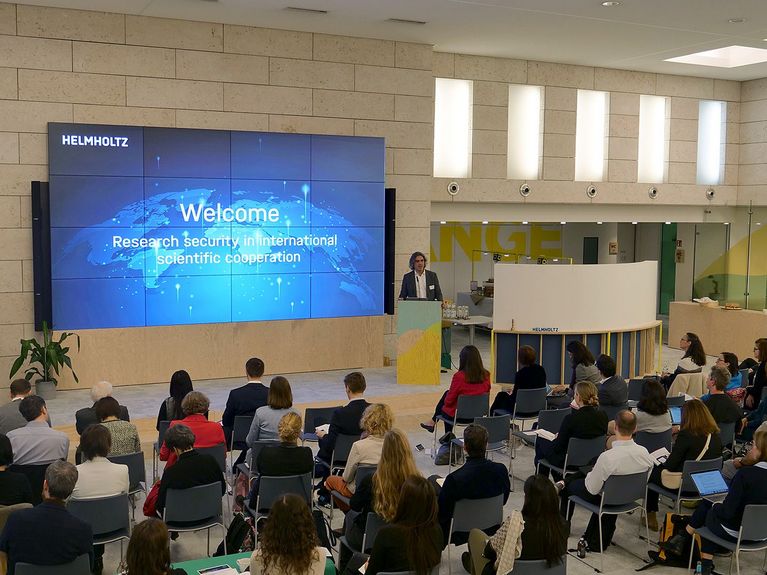Fourth Helmholtz Workshop on Research Security in Berlin

Picture: Helmholtz
How can research security be improved in times of increasing geopolitical challenges without jeopardising international cooperation or restricting scientific freedom? This was the topic of the fourth Helmholtz workshop on research security, which was attended by 100 guests from around the world.
On 11 and 12 November 2024, an impressive selection of international and national experts and guests followed the invitation of the Helmholtz Association to attend the research security workshop: Representatives from research organisations, universities, national and international think tanks, and politics from more than 15 countries met in Berlin. This is the fourth time that Germany's largest research organisation has created a platform for international exchange and supported the development of a community of practice.
Cutting-edge research depends on collaboration with the best partners worldwide. Helmholtz, for example, maintains countless international partnerships, and thousands of researchers from all continents work in Helmholtz centers. The geopolitical challenges of our time have increased the uncertainties that may arise from these collaborations in recent years. At national and international levels, stakeholders in the science system are developing new instruments and standards to ensure that research remains as open as possible while also being as secure as necessary. The most important approaches include raising awareness among participants, defining red lines, developing country- and culture-specific expertise, and creating advisory services. The discussion focused on how these approaches can be implemented in practice, what experiences have been made, and how the instruments need to be adapted to current developments.
Examples of best practice from the Netherlands, Spain, the United Kingdom, Canada and the United States were presented and discussed. Mirko van Muijen from the EU Commission, for example, presented the latest developments at the EU level and emphasized the importance of a common European approach. A panel moderated by Georgios Kollarakis of the EU Global Export Control Programme for Dual Use Goods discussed about research results that could have both civilian and military applications.The question of how research safety can be implemented and financed in science was also repeatedly raised. Helmholtz has set up a number of projects in recent years, which were presented and discussed in a separate panel.
The latest developments in Germany were also discussed, such as the stakeholder process initiated by the Federal Ministry of Education and Research (BMBF) and the question of whether a central advice center for research safety, such as those set up in the Netherlands or France, would also be the right approach for Germany.
Readers comments